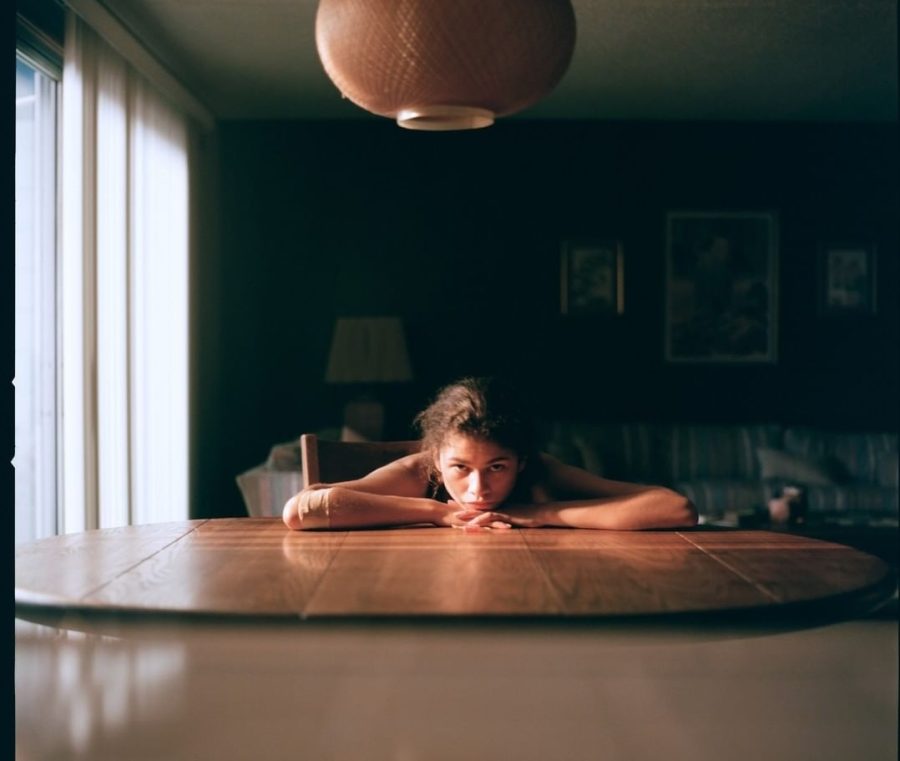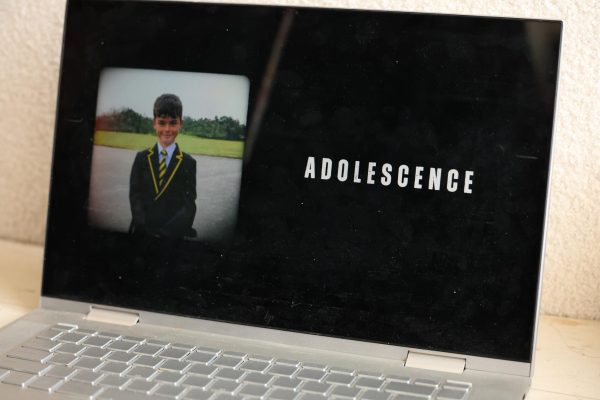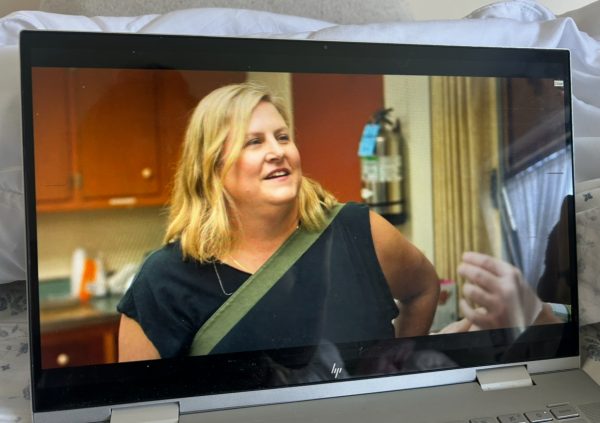“Euphoria” and the Pain of Adolescent Drug Use
Sex, drugs and rock and roll. Tune in for an episode of “Euphoria” on any given Sunday night, and that’s exactly what a viewer can expect to see. Well, maybe just the first two.
The series, which often centers around themes of sex, drug use and violence, has gained an enormous following with its dreamy aesthetics and melodramatic plotlines. But it has also made some enemies in its two-season run, and the Drug Abuse Resistance Education program (D.A.R.E.) is one of them.
The organization criticized “Euphoria” for its portrayal of teen drug use in a statement made in late January: “Rather than further each parent’s desire to keep their children safe from the potentially horrific consequences of drug abuse and other high-risk behavior, HBO’s television drama, “Euphoria,” chooses to misguidedly glorify and erroneously depict high school student drug use, addiction, anonymous sex, violence, and other destructive behaviors as common and widespread in today’s world,” the statement read.
D.A.R.E also expressed disappointment in the reaction media outlets have generally had with the show. The HBO original series, created and written by Sam Levinson, first aired in June 2019 and received generally positive reception for its entrancing visuals and compelling characters. The first season features many examples of stunning cinematography, including a visually captivating musical sequence in the season finale. The series also received praise for tackling difficult but relevant storylines focused on addiction, toxic masculinity, sexual and gender identity and the difficulties of adolescence in the digital age.
“Euphoria” has also been a vessel for fantastic acting performances. Zendaya, who plays the protagonist of the series as well as its narrator, won her first Emmy award for Best Actress in a Drama Series for her portrayal of Rue, a high schooler struggling with severe drug addiction in the aftermath of her father’s death. The series also brought attention to rising stars like Jacob Elordi and Hunter Schafer.
But D.A.R.E remains unimpressed with the show despite its many compelling and impressive elements. “It is unfortunate that HBO, social media, television program reviewers, and paid advertising have chosen to refer to the show as ‘groundbreaking,’ rather than recognizing the potential negative consequences on school age children who today face unparalleled risks and mental health challenges,” D.A.R.E said in its statement.
Zendaya, who not only stars on the show but also serves as an executive producer, has pushed back against D.A.R.E’s criticisms of the series. “Our show is in no way a moral tale to teach people how to live their life or what they should be doing,” she told Entertainment Weekly. “If anything, the feeling behind ‘Euphoria,’ or whatever we have always been trying to do with it, is to hopefully help people feel a little bit less alone in their experience and their pain. And maybe feel like they’re not the only one going through or dealing with what they’re dealing with.”
It is important to note that the possible consequences of the portrayals of drug use and other difficult topics in the show have not gone unacknowledged by the series or its stars. A disclaimer about the show’s themes appears before the start of each episode along with the phone number for the National Alliance on Mental Health.
Zendaya has also posted disclaimers of her own on her official Instagram account. A post shared ahead of the airing of the second season this January reads, “I know I’ve said this before, but I do want to reiterate to everyone that Euphoria is for mature audiences. This season, maybe even more so than the last, is deeply emotional and deals with subject matter that can be triggering and difficult to watch.”
Of course, there really is no way of ensuring that only “mature audiences” will be exposed to “Euphoria.” While the show may claim to be aimed at older viewers, it is largely centered around characters who are in high school, so it will naturally attract young people as part of its audience. It would be disappointing to discover that the creators and stars of “Euphoria” genuinely believed that the show would avoid garnering a large high school viewership.
So, yes, D.A.R.E, there are definitely children watching “Euphoria.” No reasonable person would deny this. However, do we really believe that the only thing a high school viewer would take from the series is that drug use is fun and glamorous? Granted, there are many scenes, especially in the first season of the series, that portray its high school characters using illegal drugs at parties, carnivals and glitzy nightclubs. The characters wear stunning eye makeup and trendy clothes while they get high under beautifully colored lights. You can make a genuine argument that these moments do serve to at least romanticize the aesthetics of illegal drug use by minors.
However, these are not the only portrayals of drug use in the show. There’s a reason Zendaya won an Emmy for her performance in the first season of “Euphoria.” Watching Rue struggle through the ups and downs of serious pill addiction is heartbreaking and terrifying. The show captures the fallout of serious addiction — how it changes your relationships with loved ones and forces you to become a different person. There is nothing romantic about watching Rue pound on her drug dealer’s door, begging to be let inside because she cannot handle the withdrawals that come with being sober. There is nothing romantic about watching her little sister find her lifeless body after her first overdose. And there is nothing romantic about watching Rue put herself in mortal danger trying to get high episode after episode.
Watching “Euphoria,” the viewer is genuinely terrified for Rue. We want her to get clean so badly. We don’t want her to keep using drugs. We are scared for her because we see the dangers that come with serious addiction.
Zendaya is right when she points out that “Euphoria” isn’t meant to be a moral tale. There will be some viewers that will use the show’s visuals in fan cams and TikTok edits and romanticize the partying that happens on the show. But why do we assume that these same viewers aren’t also being touched by Rue’s story and learning about the reality of drug addiction?
I watch “Euphoria” for its unique and beautiful aesthetic. Some of it is really just fluff — pretty clothes, pretty gems, pretty lights. But I also watch it for its nuanced portrayals of complex topics that are relevant to today’s youth: addiction, sexuality, gender identity, the harmful effects of social media on self-image and unhealthy and abusive relationships. I trust myself and other viewers to take in the show and separate the beautiful cinematography from the dangerous behavior of its characters. I wish D.A.R.E could do the same.













































































































































































































